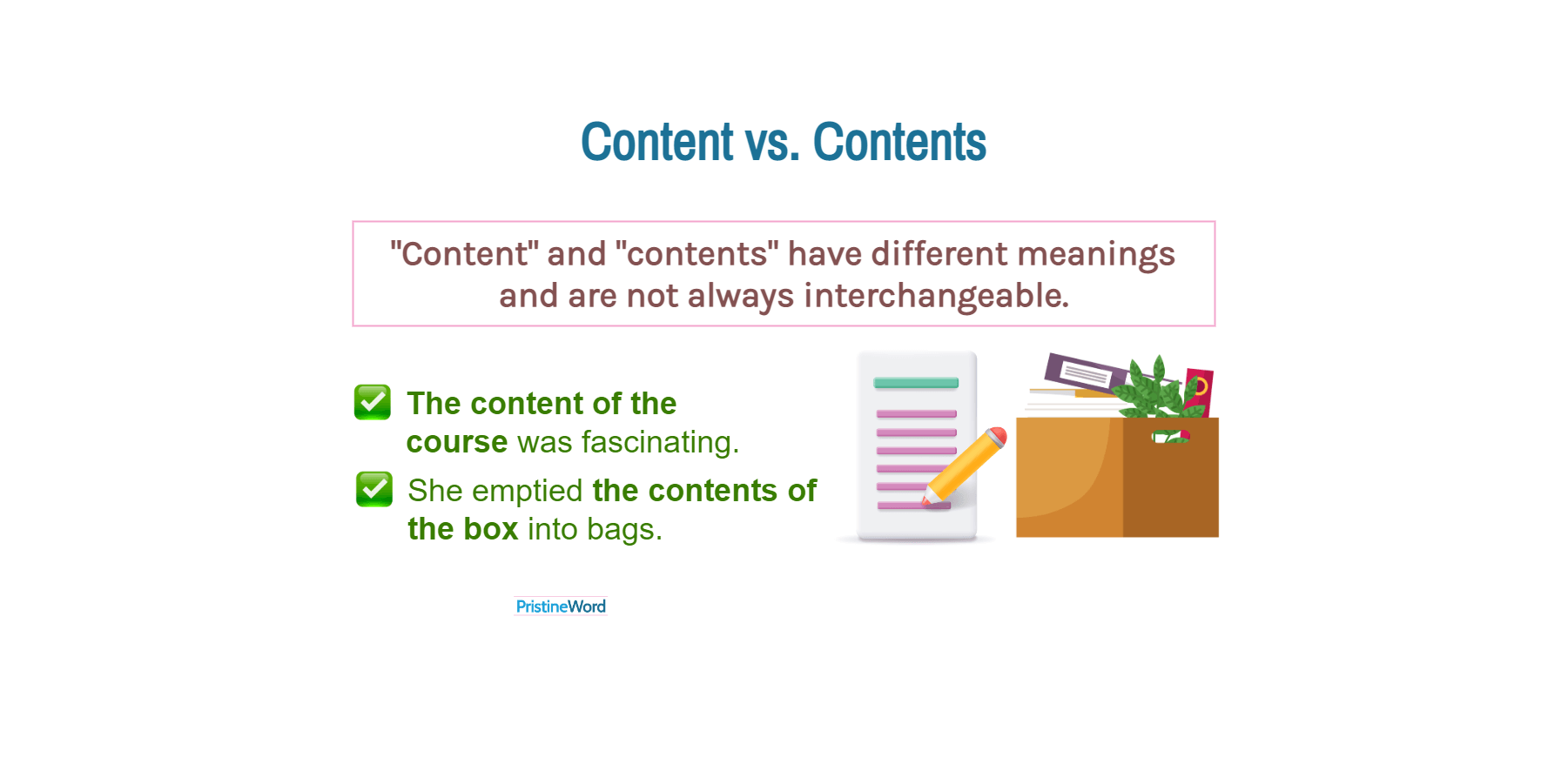"Content" and "contents" have different meanings and are not always interchangeable.
"Content" and "contents" have different meanings:
- "Content" can be used to speak about:
- The ideas or story of a speech, letter, piece of writing, etc. (e.g., "The content of the course was fascinating.")
- The amount of a substance that something contains (e.g., "The fat content of cheese is high.")
- "Contents" can refer to:
- Everything that is inside a container (e.g., "She emptied the contents of the briefcase into bags.")
- The things that are written in a report, book, letter, etc. (e.g., "He kept the contents of the email a secret.")
- A page in a book or report where you can find a list of chapters or sections. (e.g., "Use the table of contents to click to a specific section.")
Thus, while a book has contents (sections, chapters, subchapters, etc.), the content of a book is the story it tells.
This is a brief summary of the contents of the book.
The title says one thing, but the content of the book is completely different.
When speaking about the content of a speech, report, book, etc., "content" is uncountable and cannot be used with the article "a"; thus, it's not correct to say "a content". Be also aware that uncountable nouns are used with a verb in the singular.
The content of a communication is its message.
The content of a communication are its message.
By contrast, "contents" is a plural noun, which requires a plural form of a verb; therefore, we say "contents are" (not "contents is").
What are the contents of your suitcase?
What is the contents of your suitcase?

